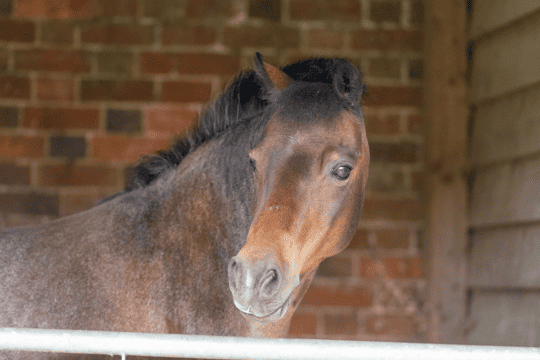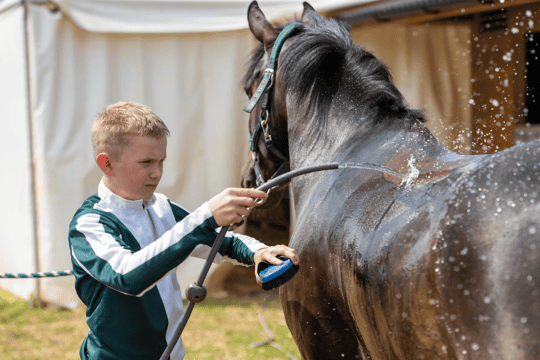
HomePony Know HowPony Care TipsStable ManagementNot-so-moody mares
-
Pony Care Tips
Learn everything you need to know about caring for your fave pony. From feeding and grooming to mucking out – we have it all here!
-
Riding Tips
Improve your riding with our fab articles! Whether it's building your confidence, riding shapes, or jumping spreads that you need tips on, we have something for every rider.
Latest News
Not-so-moody mares
Posted in Stable Management
Do you have a moody mare? Follow our simple steps to keep her happy and relaxed!

Mares often have a reputation for being moody or hormonal, with some riders preferring more ‘reliable’ geldings. But there’s nothing quite like developing a close bond with a mare – they can be super-affectionate.
Some mares’ behaviour can change throughout the months as they come in and out of season, but there are some simple management solutions you can try to keep your mare as happy as possible.
A mare’s seasonal signs
If you’re not sure when your mare’s in season, look out for the following signs…
- increased sensitivity, mostly around her flanks
- grumpy or aggressive behaviour
- frequent weeing
- squealing
- discharge on hindlegs
Did you know? Mares come into season roughly every three weeks throughout the spring, summer and autumn. Each season lasts around five to seven days as the mare’s body prepares for potential pregnancy. This causes hormones to be released, which act as the body’s messenger signals, and can cause her behaviour to change.
Gently does it
Some mares feel more sensitive and sore to the touch when they’re in season, particularly around their flanks. Keep your mare as comfortable as possible by grooming her gently during this time. Start at her neck, working your way slowly towards her flanks. Use a softer brush, such as a face brush, on her most sensitive areas.
Similarly, be considerate when you tack her up – put her saddle on at least five minutes before you plan to ride and do the girth up gently, one hole at a time.
Top tip – Mares are more likely to react or be startled while in season, so handle her with respect. Remember not to approach her from behind, and move around her cautiously and sympathetically.
Work together
Some mares are easily distracted when they’re in season, which can make them more tricky to ride.
Just like people, all mares are individual and have different reactions. While some might like to keep their work exciting, like polework and jumping, other mares could prefer to have a chilled few days of light hacking.
Once you’ve worked out what your mare’s most comfortable doing while she’s in season, you can balance her workload around it.
Did you know? Your mare’s first and last seasons of the year are normally the most intense, so be more aware and sympathetic during this time.
Girl power!
If your mare becomes irritated or flirty with geldings while she’s in season, avoid turning her out with them. Try putting her in a field only with mares and where she’s not right next to geldings. This way, she’s less likely to be affected by them, helping her to stay happy and relaxed.
Bothersome behaviour
If you’re worried your mare’s seasons are affecting her behaviour excessively, make a note of when the reactions are occurring. If it’s every three weeks, hormones are likely to be the case. You can then speak to your vet to rule out pain in other areas, and they can advise you on the best way to rebalance her hormone levels.
Did you know? Some people claim that mares are more loyal than geldings, and that once you’ve bonded with one, you’ve got a friend for life. Whether or not that’s the case, there’s nothing better than a good cuddle with your fave mare!






















Leave a Reply
You must be logged in to post a comment.